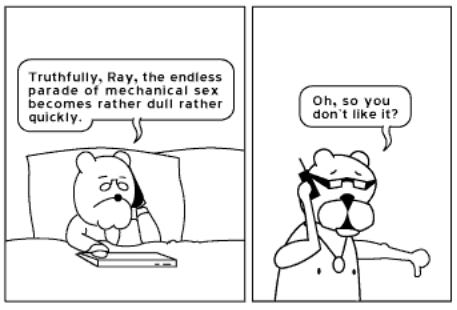This post will likely come off more as a rant than as anything thought through, and frankly I’m OK with that. It’s been written and posted out of impulse, it has not been edited, it does not do a good job sticking to the point, and in many ways it more likely echoes what I normally post for paid subscribers only rather than what I’ve been putting out publicly this year. But, alas, it’s ok. I always need to recognize the importance of just writing something publicly, even if maybe some of it is stupid, but it’s a way to stumble around an idea with at least enough conciousness that it will be available to be read by someone else, which helps rein it in to the point of, hopefully, getting somewhere, if not necessarily the place where you thought you were going.
Apologies for those waiting for the Alt-Lit part 2 essay, but it’s not coming for a while. I’m too busy with real life things and I don’t feel like wallowing in that at the moment. On the same hand, I know that if I don’t return to writing sooner than later it will continue to get more difficult to actually make the jump back in, so I want to write about something that I’ve been thinking about adjacent to…everything, but particularly attached to my on-going engagement with and resistance towards “Fashion,” which for the sake of my argument here is best defined not merely as clothing or styling, but rather a cyclical zone of capitalism that predicates a specific trend or application, a way to construct the illusion of a shared community predicated on little more than an aesthetic attraction and a capacity to shill out one’s hard earned (or, realistically, perhaps not) dough in order to participate.
Trigger warning, throughout this ‘essay’ I am going to point to philosophical ideas and I am going to clarify now that I am not going to rigorously find citations that elaborate what I’m pointing to; this is not an academic essay and the pointing is more to show where my thoughts have begun to percolate rather than to be trapped in the pedantic literalist cycle of an academic samsara. This is not because I want to be lazy, but rather because I want to put the thought before the research for once, I want to let the doors open before they get slammed shut.
This meander begins with the confluence of a reading of Nick Land as a “weird libertarian” in confluence with a disappointment towards what I see as the cultural fallout of the accelerated late-capitalist impulse. A reading of this blog will undoubtedly immediately point to my interest in an engaged sort of mode of living. My investment in my interests is passionate, I could frame all of it within the window of “communion” as articulated via Bataille’s writings on the creation of the sacred and Grotowski’s “post-theatrical” work. I am nothing if not interested in experimentation not as any sort of aesthetic shortcut but rather explicitly because I am, truly, invested in fucking around and finding out. It is hard for me to accept anything untested, but I love doing the work of experimenting.
Much of my engagement with body dressing surrounds a cultivation of something novel, not for the mere sake of novelty but as a mode of carving out a specific and distinct way of existing in the world. This has put me in a situation where I am interested with many things that surround the so-called “fashion system” without buying into the imperative that system insists upon. My interest has a lot more to do with a sort of Deleuzean affect that Maya B. Kronic and Amy Ireland refer to as “rigging” in their collective text Cute Accelerationism.
In itself, separating “fashion” from “body-dressing” seems almost performatively pedantic, but there must be a difference highlighted here. I have taken towards “body-dressing” as a term for what I am interested in because it pushes towards an embodied corporeality rather than merely insisting on the semiotic expressivity of dressing. My adaptation of this term is owed to the volume edited by Joanne Entwistle and Elizabeth Wilson that shares the term as a title.
I have always been fully sold on the utopian possibilities that fragmentation offers as a push away from a monoculture; the heterogeneity offers an abundance of options, creating places for thought to guide interest rather than merely being force fed a hegemonic insistence upon “objectively good” culture, or whatever. In this construction, I am still very much for this. However, the issue arises that the accelerated nature of capitalism, and the inherent fragmentation that this endless push towards profit has turned the situation around – one no longer puts any effort into engaging with a given thing to participate, rather they instead participate merely by spending money. This insistence even trickles down adjacently into soft-left methods of so-called protest, where refusing to spend money for a product produced by a company whose politics you don’t agree with becomes the most practical radical act one is willing to access. This is merely an inversion of the capitalist-leftist imperative where a company can gain traction amongst the democratic portion of the population by performing an engagement with identitarian politics; i.e. companies funding pride when it suits them economically and turning their back when the structure has changed.
All of this is clearly evident at this point, but it’s so dreadfully empty as a way of actually finding pleasure in life. It is perhaps because I once found it impossible to disagree with a friend when he described that his solution to an existential night of the soul found no recourse to the sustainment of life itself outside of the pleasures that art can bring. It should hopefully go without saying that pleasure and hedonism are not the same. If we do not actively cultivate joy in any meaningful sense, then we cannot escape the nuance of what it means to be human – and this so-called nuance is what everyone wants to point towards in arguments against AI. If you’re only reading books that are functionally algorithmic in their mass-market appeal, who cares whether a human or a machine is “writing” them? Lee Lozano’s quote, which I’ve been upholding for years, comes to mind here: “Seek the extremes, that’s where all the action is!”
I have recently realized that the prevalence of evangelical christian rhetoric likely has more to do with how miserable the 99% are under capitalism than anything else: if we cannot cultivate passionate interests without spending money, we have no real “life” in the day to day. The promise of unknowable and unarticulable pleasures in an endless afterlife of heaven becomes appealing because it’s a way out of the banality. Forget nuance, we have no recourse to joy outside of that endorphin hit that buying a new pair of boots or getting 50 likes on instagram can bring. Existence is now transactional.Suffer now for an eternity of pleasure! But what is this unknowable pleasure? Don’t ask someone who subscribes to this thought, because if you can’t figure out how to find pleasure in the real world, you can’t be expected to articulate what this might amount to on a bass-boosted level.
A friend pointed to how dreadfully adolescent it all feels: “the idea of not trying because failure and the upper possibilities of the self were better left untested and presented as apathy”. And this is what seems to be left right now: we are afraid to try because we might fail, but we have nothing but failure as a starting point, so apathy and performative transactions are all we can give space to.
To someone like me this is, of course, wildly depressing. And it is, of course, why I manage to continue moving forward and loudly because I am passionate about what I am interested in investigating, engaging with, and pushing towards. In a culture where there is no value in trying unless it leads to a paycheck, the individual who tries hard to do something that has no immediate transactional reward is considered a psychopath. It is frustrating.
There is, of course, a way out of this echo chamber. And that is merely by finding ways to exit the capitalist imperative, to follow what excites you regardless of whether or not it can be monetized, and to figure out how to not give a fuck if someone doesn’t know how to categorize you.






"figure out how to not give a fuck if someone doesn’t know how to categorize you" — a survival skill. Yes.